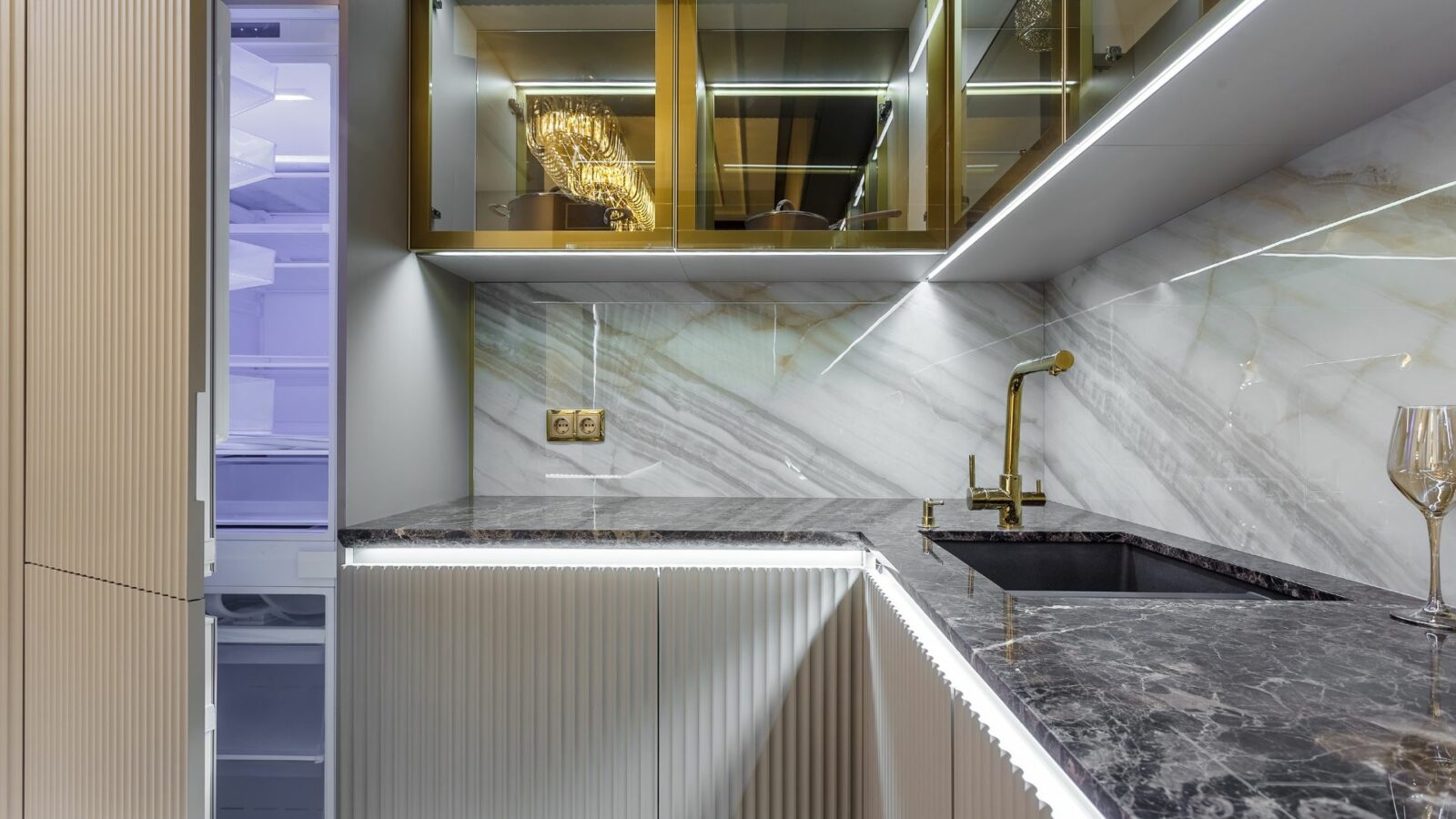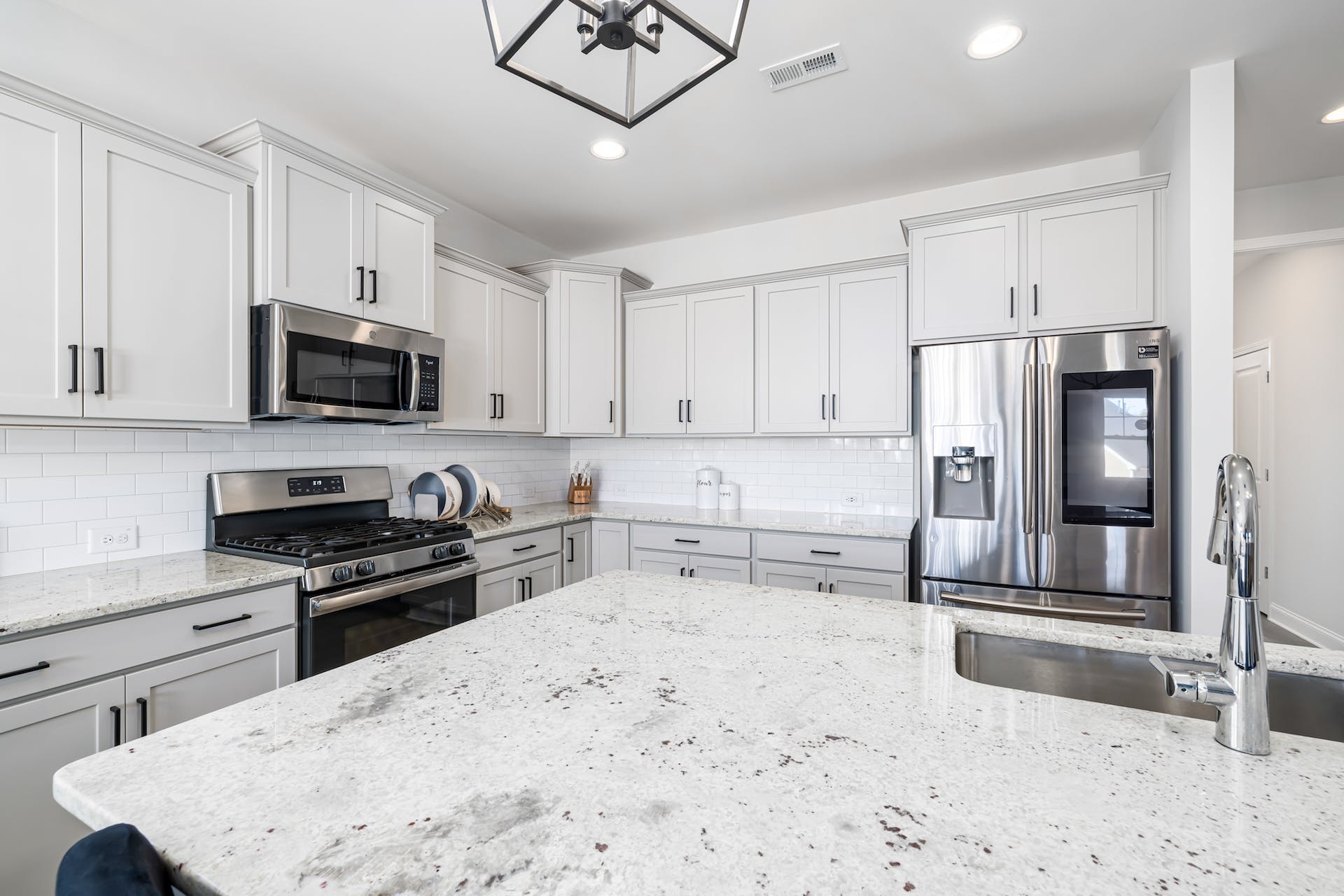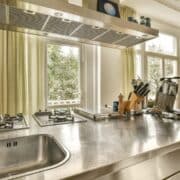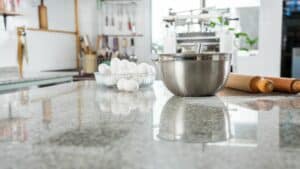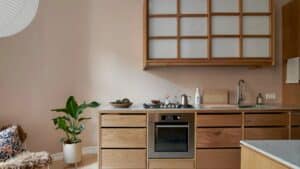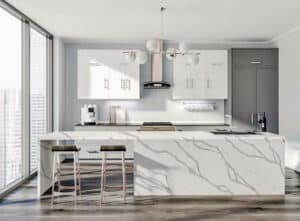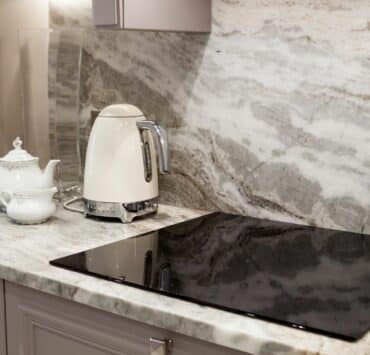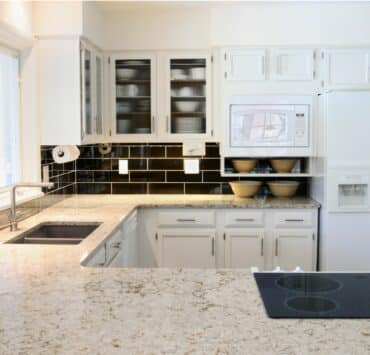Wondering how to buy countertops? The first step to choosing the best one for your space is to understand the various types of countertops.

How to Buy Countertops
Types of Countertops
- Quartz countertops
- Granite countertops
- Solid surface countertops
- Laminate countertops
- Laminate sheet countertops
- Butcher-block countertops
Every countertop material comes with its unique advantages and factors to consider. Explore the details below to enhance the aesthetic of your kitchen surfaces with a stunning upgrade.
How to Buy Quartz Countertops?
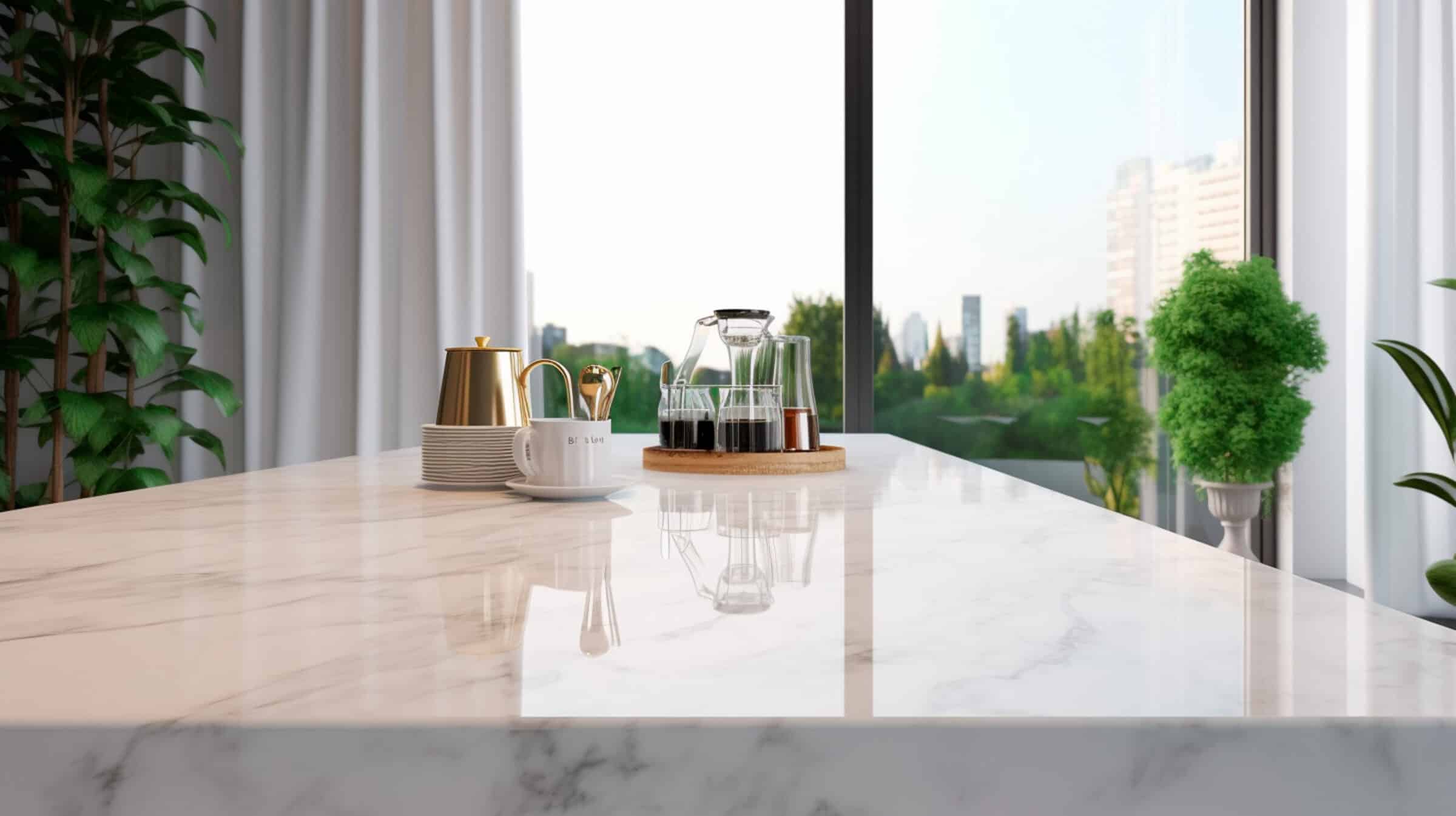
About Quartz Countertops
Quartz countertops offer a hassle-free, low-maintenance solution that’s ideal for bustling kitchens. Crafted from the toughest natural mineral on the planet, blended with resin, it boasts a nonporous composition, making it resistant to stains and a breeze to clean. Forget about the need for sealing, conditioning, or polishing.
Pros
- Effortless maintenance
- Long-lasting durability
- Nonporous surface guards against bacteria and germs
- Easy to clean, no need for sealants or polishing
- Resistant to heat, scratches, and stains
- Colors and patterns maintain consistency
Considerations
Quartz countertops can elevate your space, but it’s essential to be informed before making a decision. Below listed are some of necessary information you must know.
- Range: $50-165 per square foot; Average Cost: $95 per square foot
- Possible fading or discoloration in UV light
- Susceptible to damage from excessive heat
- Visible seams may be present
Maintenance
Caring for a quartz countertop is as simple as it is stunning. Use mild soap and water or a nonabrasive, oil-free cleaning solution. Steer clear of harsh chemicals to ensure its long-lasting beauty.
How to Buy Granite Countertops?
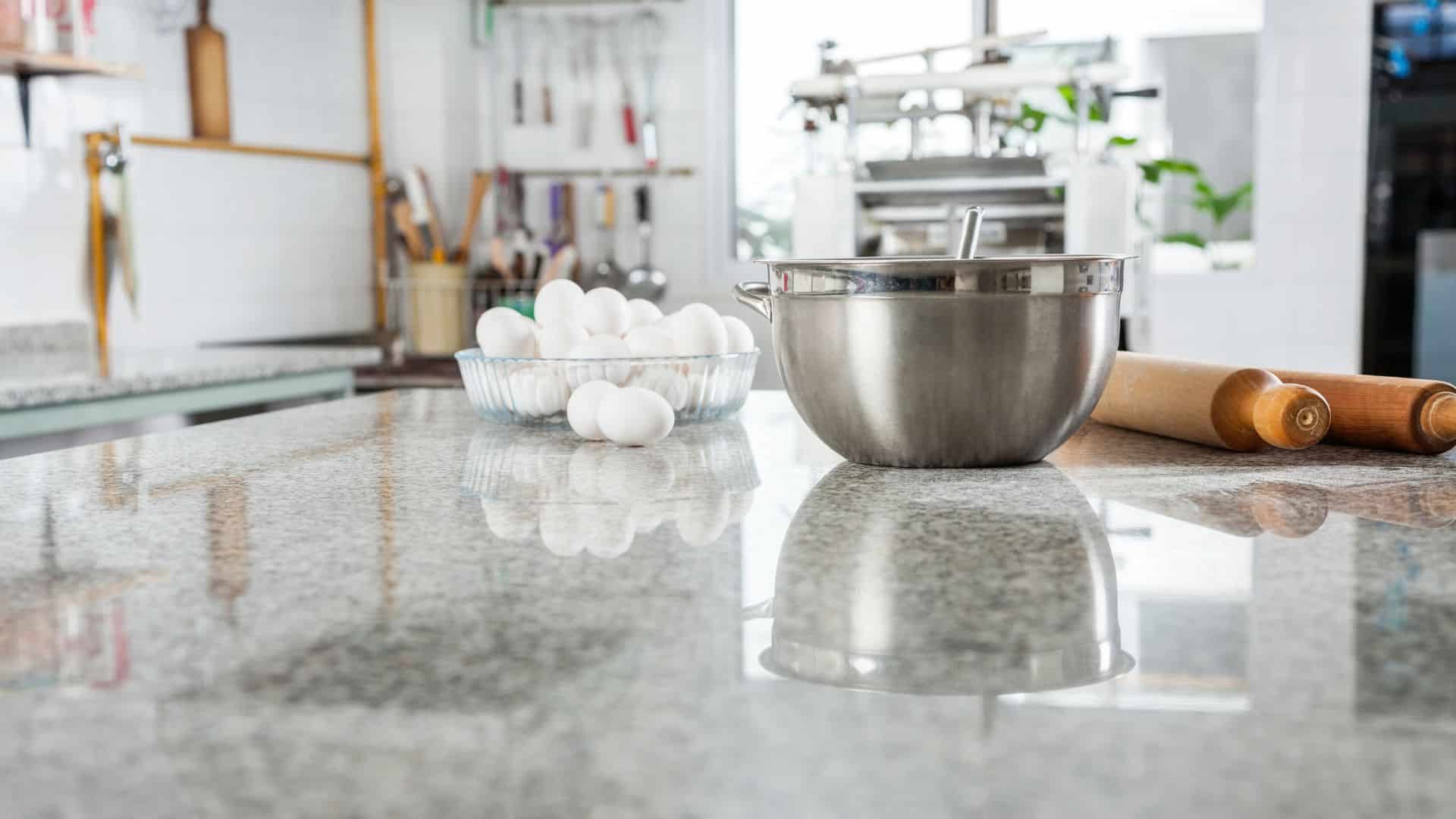
About Granite Countertops
Granite, a naturally heat- and scratch-resistant material, is a favored choice for kitchen surfaces. When properly sealed, it becomes resistant to stains and bacteria, making it an ideal option for food preparation.
Pros
- Unique variations in each slab
- Heat and scratch resistance
- Stain and bacteria resistance (when sealed)
- UV resistance
- Safe for food preparation
Considerations
While granite countertops offer numerous benefits, it’s important to consider certain aspects:
-
- Cost Range: $45-165 per square foot
- Average Cost: $85 per square foot
- Possible visible seams
- Annual sealing and maintenance may be required
- Prone to fractures
- Repairs may be challenging
Maintenance
Our granite offerings come with a warranty and are treated with a protective sealant to guard against staining and discoloration. To maintain granite, a simple cleaning with mild soap and water is recommended, while ammonia-based solutions should be avoided.
How to Buy Solid Surface Countertops?
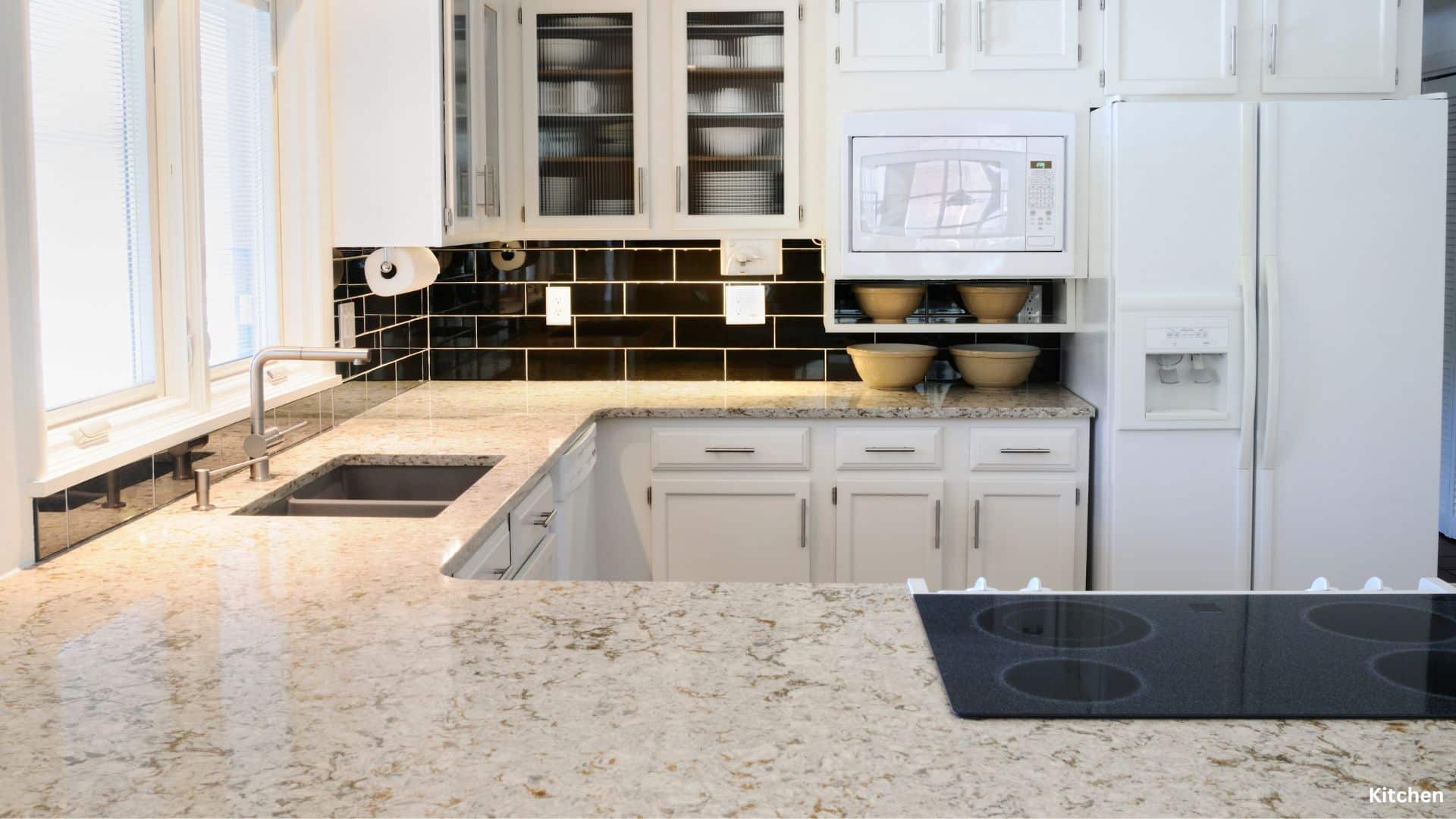
About Solid Surface Countertops
Opt for solid surface countertops when seeking an economical and practical solution. Crafted from nonporous acrylic, these countertops are both easy to clean and resistant to stains and bacteria.
Pros
- Range: $40-105 per square foot
- Average Cost: $60 per square foot
- Easy-to-clean nonporous surface
- Scratch-resistant and easily repairable
- Suitable for backsplashes and sinks
- Available in a variety of colors and patterns
Considerations
- Less heat-resistant compared to other surfaces
- Susceptible to scratches
- Maintenance
Maintenance
Being man-made and nonporous, solid surfaces are hygienic and easy to clean. Everyday cleanup requires soap and water, while an ammonia-based cleaner is suitable for stains. Avoid using window cleaner for maintenance.
Laminate Countertops
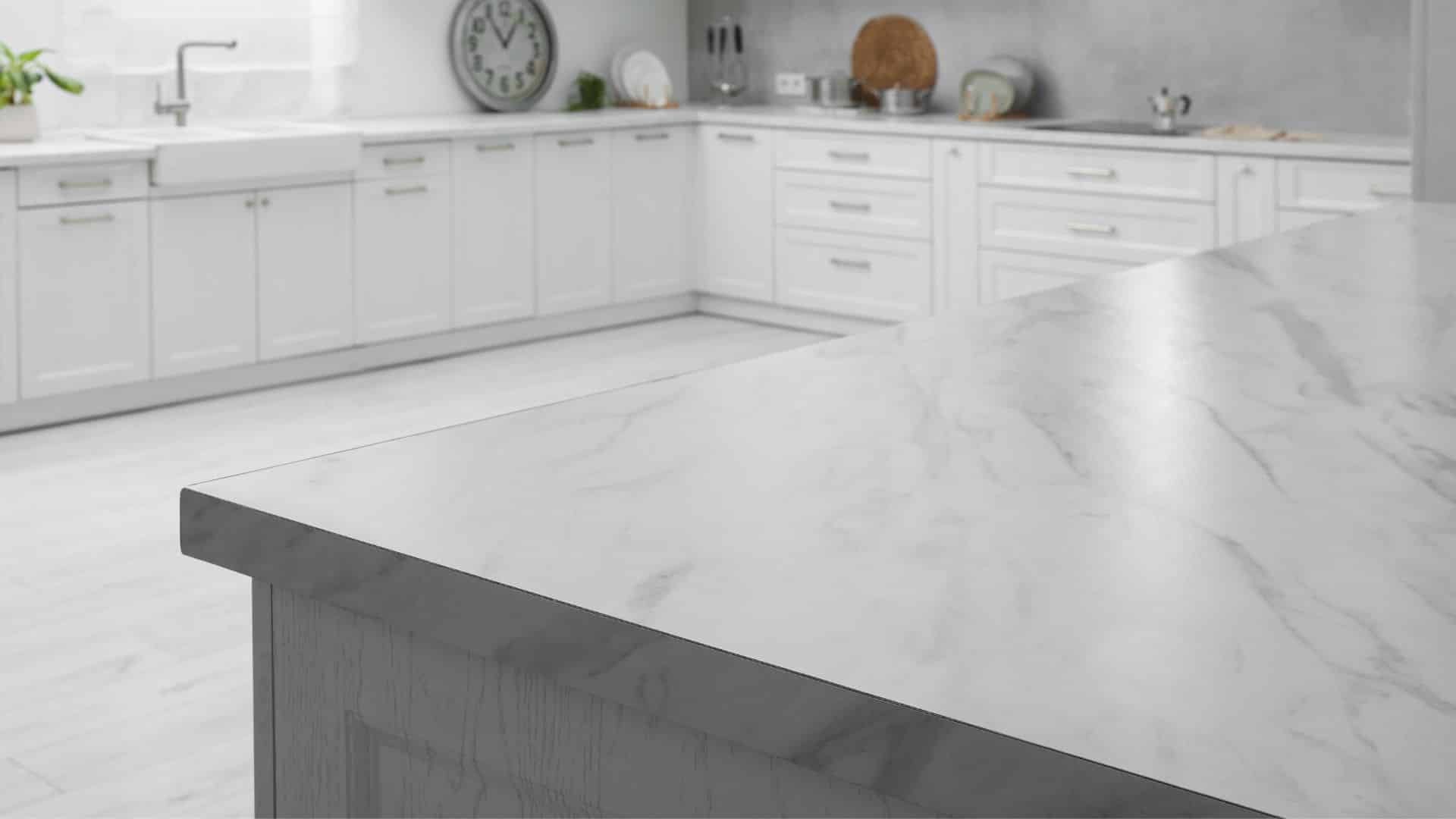
About Laminate Countertops
Laminate countertops offer a chic and budget-friendly choice, adding allure to any kitchen. With a variety of styles, patterns, and finishes to choose from, laminate brings both style and convenience to your space.
Advantages
Laminate provides a simple and low-maintenance solution for your bustling kitchen, all while being the most budget-friendly countertop option. Here are some standout features:
- Range: $25-65 per square foot
- Average Cost: $35 per square foot
- Durable and resilient
- Easy to clean with mild soap and water
- Suitable for DIY installation
- Water-resistant
- Extensive color and style options
Considerations
To make an informed decision, it’s important to be aware of the following factors when considering laminate countertops.
- Susceptible to scratches
- Possible visible seams
- Vulnerable to damage with exposure to heat
Maintenance
Laminate countertops are hassle-free and require minimal upkeep. Keeping them clean is as easy as using mild soap and water.
Laminate Sheet Countertops
About Laminate Sheet Countertops
Opting for laminate sheets is an excellent choice when you want to revitalize your countertops without undergoing a complete replacement. These thin and flexible sheets are effortlessly installed over your existing countertop, providing an instant upgrade. With a diverse range of styles and finishes, you can effortlessly achieve the appearance of natural stone, granite, wood, and more.
Advantages
Laminate sheets make for a feasible project, especially for DIY enthusiasts. To ensure a seamless look, heat is applied to shape and bend the sheets.
- Affordable
- Easy to clean with mild soap and water
- Suitable for DIY installation
- Water-resistant
- Abundance of colors, patterns, styles, and sizes
Considerations
While laminate sheets offer a cost-effective way to give your kitchen a quick facelift, it’s important to consider the following factors before making a decision.
- Less durability compared to other countertop materials
- Susceptible to scratches
- Prone to cracking, especially around the edges
Maintenance
When cleaning laminate sheets, it’s best to use minimal water. A clean, damp, nonabrasive cloth and mild soap are sufficient for maintaining their appearance.
Butcher Block Countertops
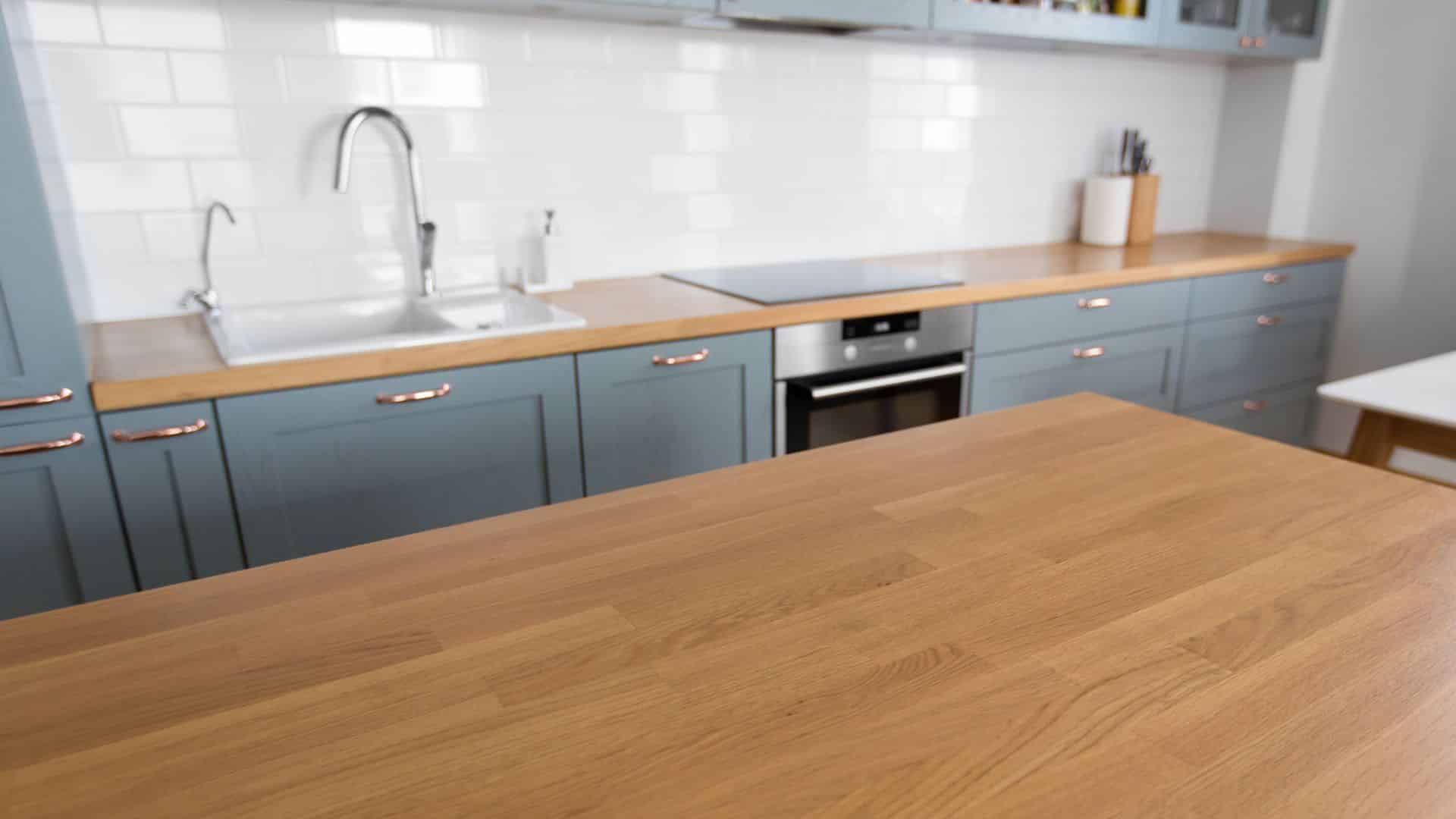
About Butcher Block Countertops
Butcher-block countertops infuse a welcoming warmth into any kitchen, making them a perfect fit for dining areas or as focal points on kitchen islands or desks.
Pros
Butcher-block countertops not only bring rustic charm to your kitchen but also offer several benefits.
- Affordable to moderately priced
- Environmentally friendly
- Naturally reduces noise
- Scratches and nicks are easily sandable
- Ideal for non-food prep and dining areas
- Develops a deep patina over time, adding beautiful dimension
Considerations
Despite the allure of butcher-block countertops, it’s essential to be aware of certain details when making a decision.
- Requires frequent treatment with food-safe mineral oil to guard against water damage
- Low resistance to heat, and excessive dryness may lead to cracking
Maintenance
Cleaning butcher-block countertops is a simple task. Use dish soap, hot water, and a sponge to scrub along the wood’s grain. Rinse with hot water and thoroughly dry with a clean dish towel.
Other Countertop Materials to Consider
- Recycled glass
- Tile
- Ultracompact (combination of quartz, porcelain, and glass)
- Soapstone
- Concrete
- Stainless Steel
- Limestone
- Marble
- Recycled plastic
- Bamboo
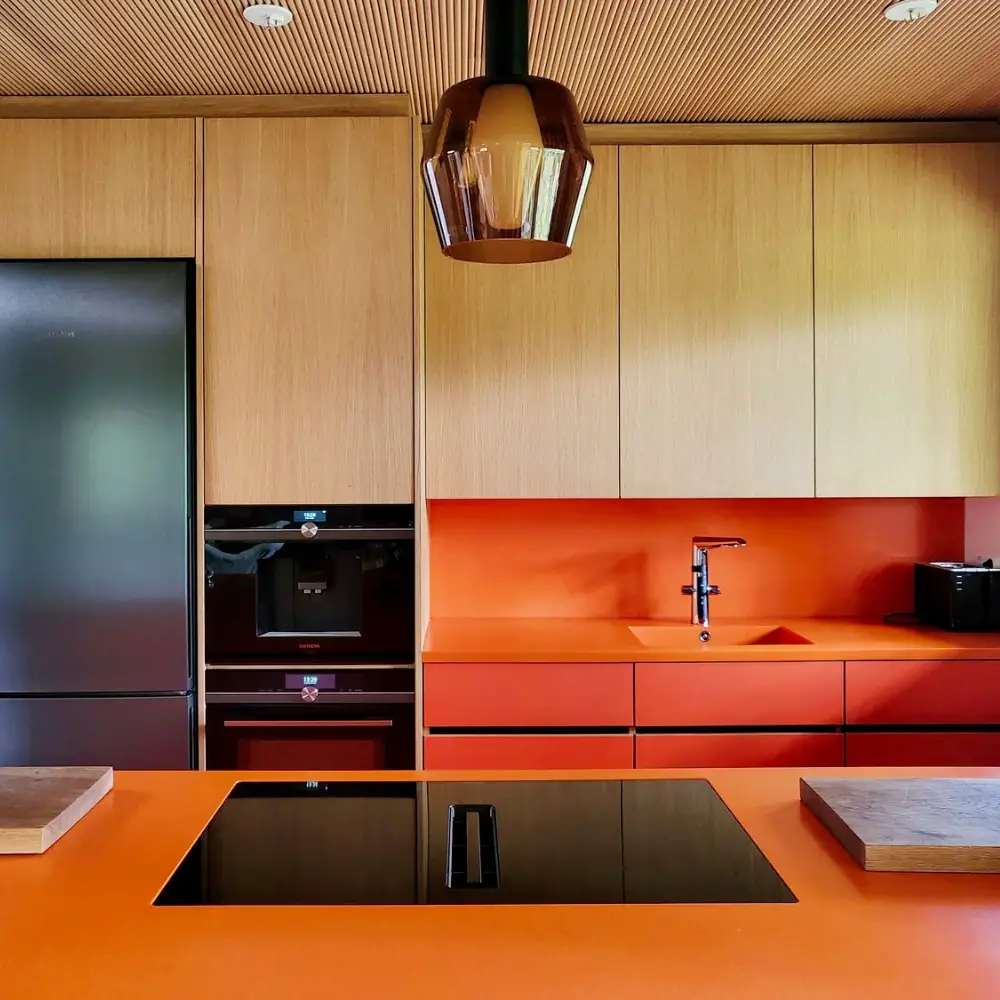
Essential Factors To Know When Buying Countertops
Now that you know about the various countertop materials, countertop edges and mixing different materials, lets dive into other factors to emphasize on when buying countertops.
Determine Your Budget
For many individuals, budget considerations play a pivotal role in decision-making. Countertop prices can vary significantly, ranging from the more economical Snow White quartz at $45 per square foot to the higher-end Calacata Gold marble, priced at $130 per square foot.
If your countertop spans a smaller surface area, you might discover that you can afford a more premium stone than initially anticipated. However, the key to establishing an accurate budget is to obtain a quote. Remember, it’s crucial to factor in not only the cost of the stone but also the associated labor expenses.
Define Project Details
Have you finalized your project details, or are you still exploring options? Are your existing cabinets robust enough to support the weight of a substantial stone, or do they require replacement? Do you have the precise measurements for your countertop? Are you considering the installation of a backsplash?
When budgeting, having a clear understanding of the project’s details and overall scope is essential. This information enables our fabricators to assist you effectively, offering recommendations tailored to your project’s requirements. Always allocate a little extra in your budget, as labor costs, particularly for materials like granite, can impact the overall price. As a general guideline, set aside around 10% of your kitchen budget for countertops.
Choose Countertop Height
Typically, countertops stand at an average height of 36 inches. However, if you’re considering a kitchen island with a bar-style countertop, you might opt for an increased height of 42 inches. Fundamental ergonomic design principles suggest that all kitchens should be structured to facilitate tasks efficiently, including determining the countertop height. Individuals with limited mobility might find it beneficial to lower their countertop to a height ranging between 28 to 34 inches. The decision ultimately rests on your and your family’s specific requirements.
Consider The Sink
If budget is not a limiting factor and you find yourself uncertain about selecting a countertop material, examining the type of sink you prefer might guide your decision. A drop-in sink represents the most traditional kitchen sink style, featuring a visible lip around its perimeter that rests flat on the countertop. This type is universally compatible with all countertop materials.
In contrast, undermount sinks are installed beneath the counter, eliminating the rim between the countertop and the sink. Due to their weight, materials such as quartz, marble, and granite are optimal choices and seamlessly pair with undermount sinks.
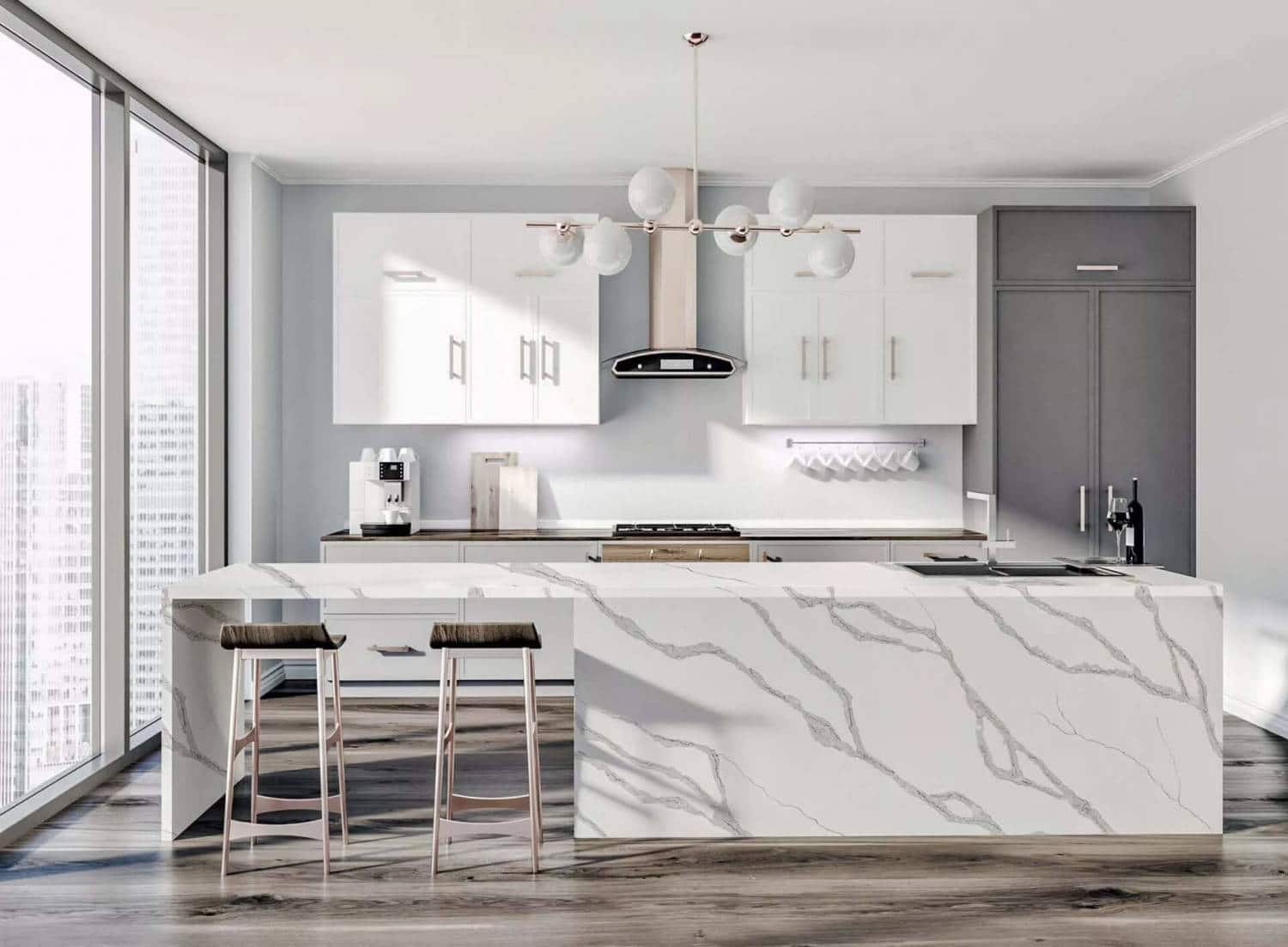
Decide Countertop Edge Style
Enhance the aesthetics of your kitchen with our selection of decorative edges, showcased in a blue and white diagram featuring seven different styles.
Beauty lies in the details, and our decorative edges add the perfect finishing touch to your kitchen. Choose from seven types: eased, bevel, round-over, double round-over, 90-degree edge, waterfall, and ogee. The choice of edge depends on the countertop material you select. Here’s a breakdown of countertop types and the compatible edges for each:
- Eased: Provides a sleek, modern look with a gentle 90-degree angle. Suitable for quartz, granite, solid surface, and butcher block.
- Bevel: A modern twist with a 45-degree angled edge, compatible with quartz, granite, and solid surface, fitting various design styles.
- Round-Over: Rounded at the top and flat on the bottom, perfect for quartz, granite, and solid surface.
- Double Round-Over: Similar to the eased edge but with a slight curve on top and bottom, creating a rounded appearance. Works well with quartz, granite, and solid surface.
- 90-Degree: Also known as a square edge, a hard 90-degree angle on all four sides. Suitable for granite and laminate.
- Waterfall: A continuous countertop edge that flows from the countertop down the side to the floor, uniting countertop, cabinet, and floor. Ideal for laminate countertops.
- Ogee: Featuring a concave radius, the ogee edge exudes classic luxury and pairs perfectly with granite countertops. This edge profile is particularly popular for natural stone countertops, offering an S-shaped curve that creates a sense of luxury. Compatible with quartz, granite, laminate, and solid surface.
Choose the perfect decorative edge to complement your selected countertop material and elevate the overall look of your kitchen.
Consider Mixing Countertop Materials
Creating a personalized cooking space involves incorporating a mix of countertop surfaces tailored to specific kitchen tasks. Consider placing stone surfaces near the range for optimal functionality, while solid surfaces around the sink ensure easy cleaning.
While combining various countertops offers a unique touch, it may be the priciest option, especially with special considerations like custom orders. Consult with a kitchen project specialist to align your choices with your budget and requirements, ensuring the perfect countertop options for your kitchen.
Ask for Samples
A wise approach is to position the samples alongside your cabinets and walls to assess their visual impact. When constructing cabinets and countertops from the ground up, it’s advisable to experiment with various combinations of countertop and cabinet materials. Additionally, we suggest sampling one or two options that you are initially against—sometimes, you might find yourself reconsidering and changing your preferences.
Check for Warranty
While stone countertops are hard-wearing and long-lasting, you should still make sure your purchase comes with a warranty. New countertops are a significant investment, and you want to ensure the workmanship you hire is of a high standard.
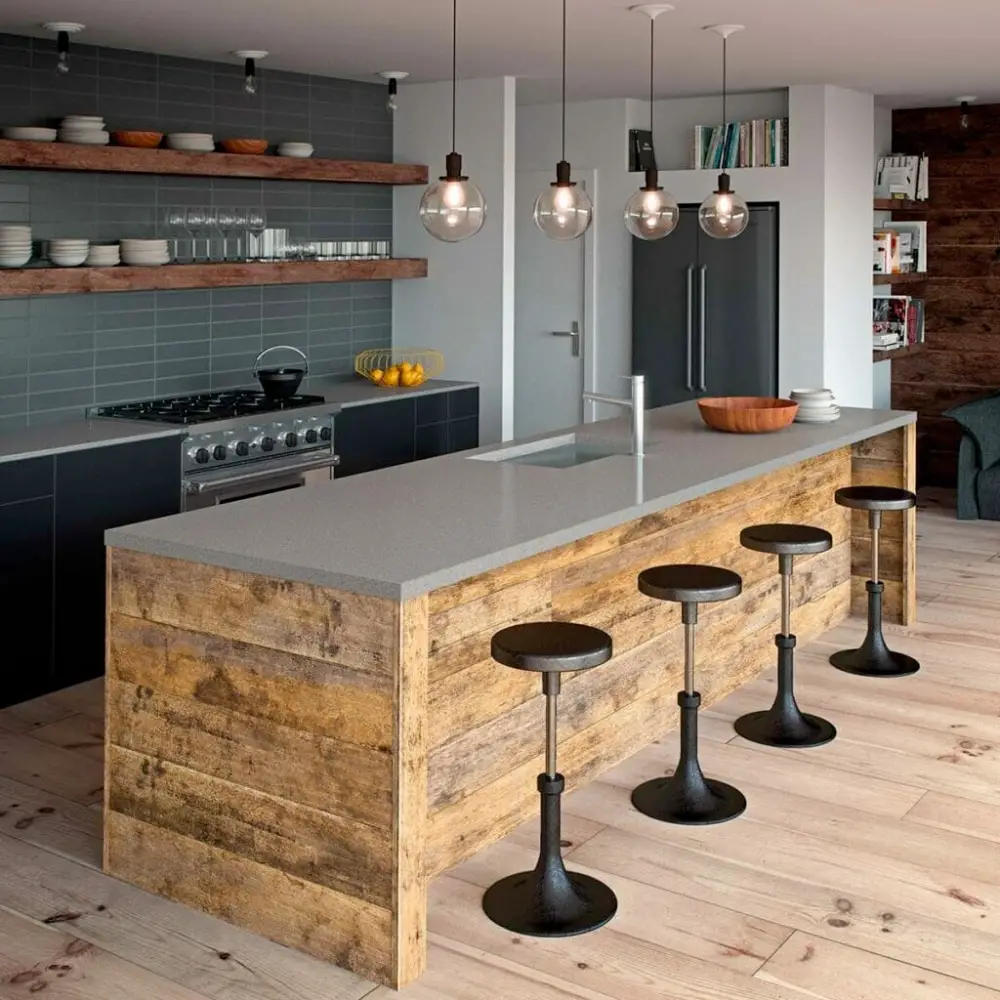
FAQs About How to Buy Countertops
1. What Should I Consider When Choosing Countertop Material?
When choosing a countertop material, consider the following factors:
- Durability: How resistant is the material to scratches, heat, and stains?
- Maintenance: Does the material require regular sealing or special cleaning products?
- Aesthetics: Does the material match your kitchen’s style and color scheme?
- Cost: What is your budget for both the material and installation?
- Functionality: Will the countertop withstand the type of use it will get in your kitchen?
2. How Do I Measure for New Countertops?
To measure for new countertops, follow these steps:
- Measure Length: Measure the length of each section of the countertop in inches.
- Measure Depth: Measure the depth from the back wall to the front edge.
- Account for Overhangs: If you want an overhang, add this to your depth measurement.
- Include Cutouts: Note the locations and sizes of cutouts for sinks, stoves, and other appliances.
- Calculate Total Square Footage: Multiply the length by the depth for each section and add the areas together to get the total square footage.
3. What Are the Installation Options?
You have two main installation options:
- DIY Installation: Suitable for more straightforward materials like laminate or pre-fabricated countertops. This option can save money but requires some skill and tools.
- Professional Installation: Recommended for heavy, complex, or high-end materials like granite, marble, or quartz. Professionals ensure precise cuts and fitting, reducing the risk of damage.
4. What Is the Average Lifespan of Different Countertop Materials?
The lifespan of countertops depends on the material and maintenance:
- Granite: 20+ years with proper care.
- Marble: 20+ years, but may require more maintenance to stay in top condition.
- Quartz: 25-30 years, very durable and low-maintenance.
- Laminate: 10-20 years, depending on use and care.
- Butcher Block: 20+ years with regular maintenance.
- Concrete: 10-20 years, with sealing to prevent cracking and staining.
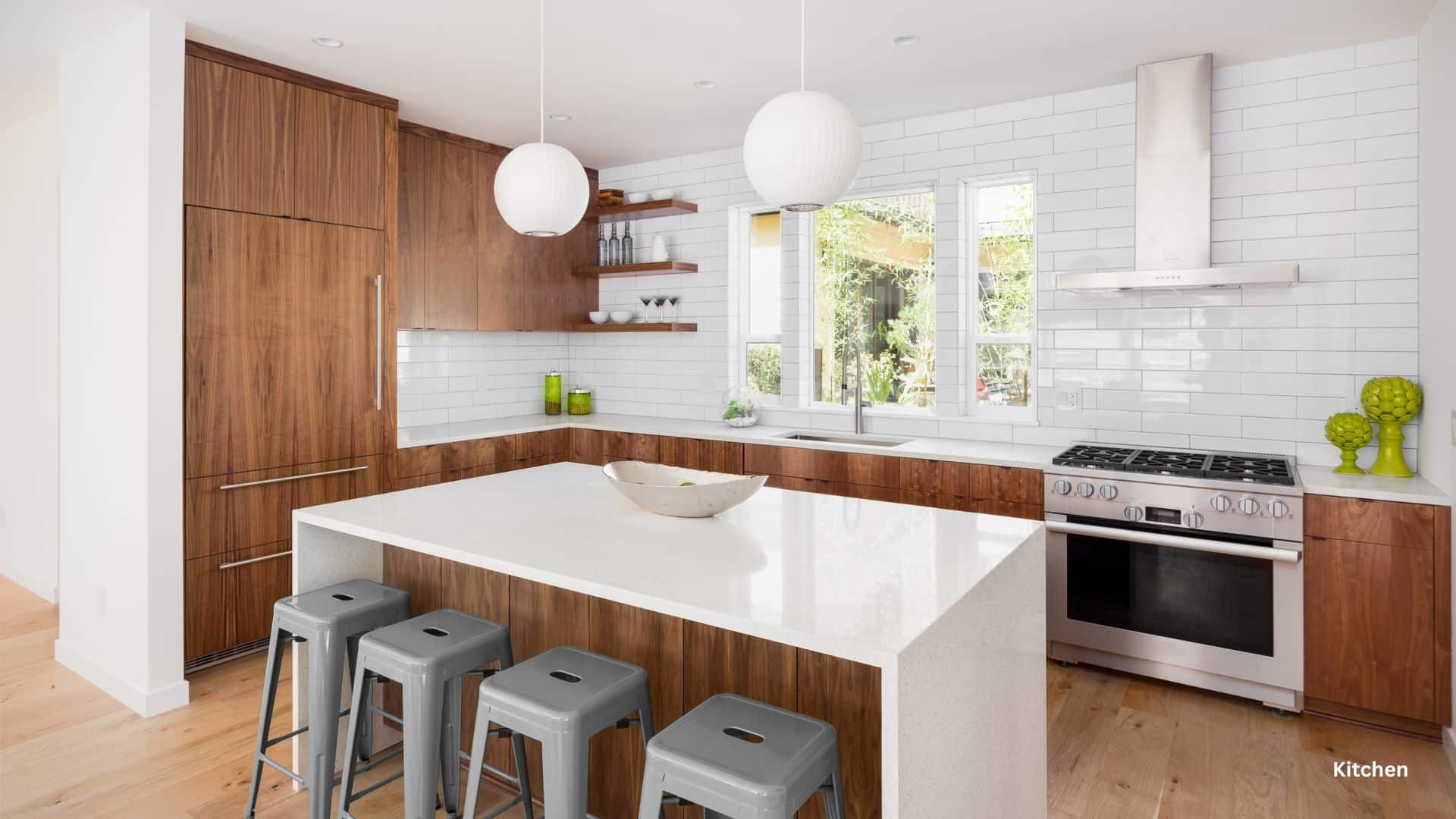
Choosing the right countertop for your kitchen or bathroom is a significant decision that impacts both functionality and aesthetics. With a wide range of materials available—each offering distinct advantages—understanding your space, budget, and personal style will help you make the best choice. Whether you’re leaning towards the durability of quartz, the natural beauty of granite, or the affordability of laminate, take time to weigh the pros and cons. With careful planning and proper maintenance, your new countertops will not only enhance your home’s appeal but also serve you well for years to come.
